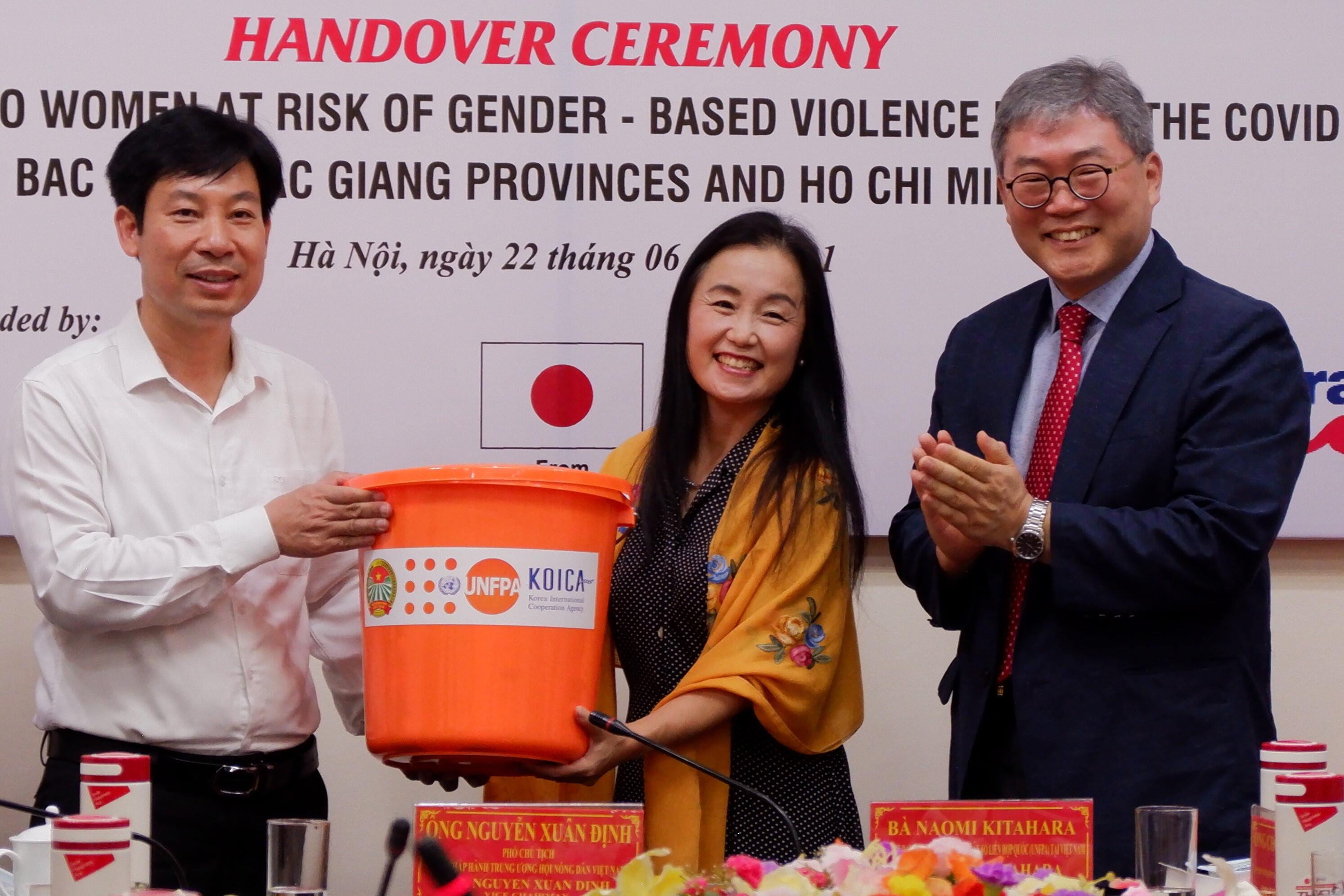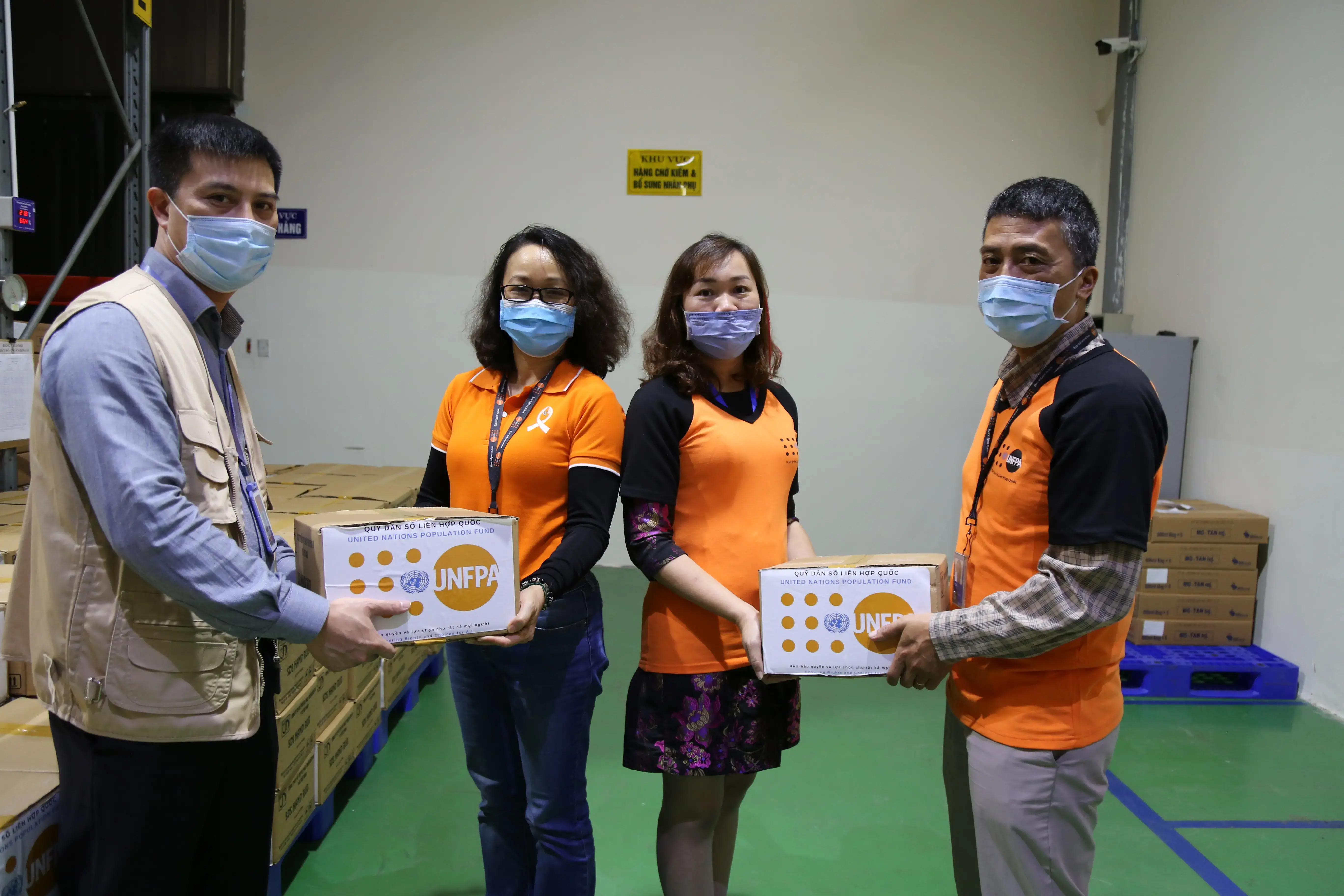Ms. Naomi Kitahara, UNFPA Representative for Vietnam
Answers to Zing News questions:
Q 1. In your opinion, should sanitary napkins, children and adult diapers be considered essential goods? And why? How would the lives of Vietnamese women and children be affected without these goods?
A1: UNFPA, as an organisation promoting women's dignity in crisis and humanitarian situations, advises countries in the world including Viet Nam to ensure the inclusion of sanitary pads as part of essential items as part of the country’s emergency response, as pregnancy and menstruation do not stop in the pandemic. We fully understand resource constraints, but women and girls require, in addition to food and shelter, additional items to preserve their dignity in their daily life. UNFPA's signature product "dignity kits," which we introduced in Viet Nam for the first time last year as part of our response to COVID-19, floods and landslides, contain such essential items including sanitary pads. Also, it is important to safeguard the uninterrupted supply of sexual and reproductive health services, particularly for pregnant women, as well as to put in place services to prevent and effectively respond to violence against women and girls, which is heightened in crisis and emergency settings. Such essential services for survivors of violence include health care, police protection, access to justice, and social services.
2. The pandemic and social distancing have caused disruption of the supplies of essential kits. What would be your recommendations to ensure undisrupted service provision during the COVID-19 outbreak?
A2: UNFPA urges countries in the world including Viet Nam to ensure the service provision for vulnerable populations such as pregnant women, and women and girls at risk of domestic violence should not be interrupted in COVID-19 outbreak. UNFPA welcomes the recent call by Vietnam’s Ministry of Health providing alerts to pregnant women on the importance of paying much closer attention to pregnancy and pregnancy-related care particularly under COVID-19 context. A similar notion has to be made for women and girls at risk of domestic violence amid COVID-19 and social-distancing measures.
In the context of sexual and reproductive health, UNFPA’s global estimation indicates that if mobility restrictions continue for at least 6 months with major disruptions to health services, 47 million women in low- and middle-income countries may be deprived of modern contraceptives, resulting in 7 million unintended pregnancies. In the Vietnamese context, we estimated last year that COVID-19 and its impact in the country could result in an increase of maternal mortality by 44-65%. The sustainable containment of the Covid-19 requires dynamic and effective inter-sectoral collaboration and coordination, meaning that all relevant sectors including labor, agriculture, industry, trade, transport, education, information, social welfare and of course health sectors need work closely together to ensure no disruption in the provision and utilization of essential services particularly in the areas of sexual and reproductive health, as well as prevention and response to gender-based violence. We see digital transformation, which we introduced last year in the form of tele-health as well as SMS text messages to alert populations on gender-based violence, as a game changer to ensure such service provision, particularly in COVID-19 environment in Viet Nam.



